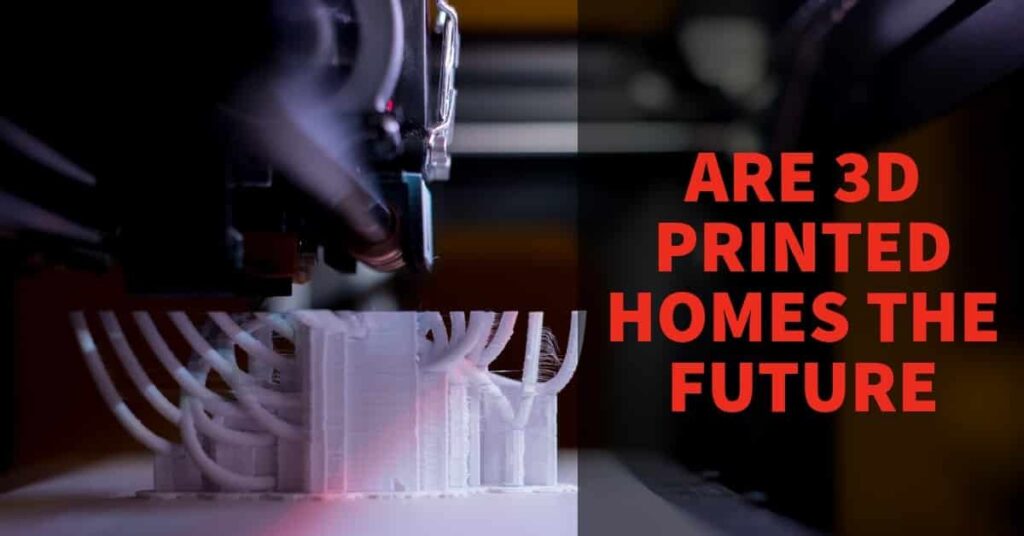Real Estate’s Digital Shift: AI and Emerging Tech Reshaping Transactions and Agent Workflow
The traditional real estate transaction often involves complex steps. Sellers face a process that can feel opaque owning a home process, paperwork and coordination demand significant effort.
This established model has seen little fundamental change for decades. Homeowners have historically navigated this landscape with limited options.
Technology now integrates into nearly every industry. Real estate, long resistant to rapid change, is no exception. Digital tools and platforms have begun to redefine how business is done.
These advancements aim to improve efficiency and access. They promise a clearer, more direct path for all parties involved.
Artificial intelligence (AI) and emerging technologies are fundamentally reshaping real estate transactions and agent workflows. They create opportunities for enhanced efficiency and optimized service models. Ultimately, these developments benefit sellers through streamlined, cost-effective solutions.
The Current State: Challenges and the Rise of Proptech
Real estate transactions often encounter common hurdles. Lengthy timelines and manual data entry frequently slow processes. Inconsistent information flow can also cause delays.
These issues add unnecessary stress and cost for sellers. The traditional model often leaves homeowners feeling frustrated.
Enter Proptech, or property technology, a catalyst for innovation. This sector focuses on using technology to address real estate challenges. It seeks to modernize and streamline the industry.
Proptech aims to solve old problems with new tools. This includes everything from digital marketplaces to advanced analytics.
Initial digital shifts began years ago. Online listings and basic CRM systems marked early integrations. These tools started to bring some efficiency to agents.
However, these early steps only scratched the surface. They laid the groundwork for more profound changes to come.
AI’s Transformative Role in Real Estate Transactions
Data Analytics and Predictive Modeling
AI in real estate now offers powerful data analytics. It processes vast datasets to identify market trends. Automated Valuation Models (AVMs) provide quick property valuations.
These models consider numerous factors, from recent sales to neighborhood amenities. They offer a data-driven perspective on a property’s worth.
AI helps agents identify optimal listing prices. It analyzes market demand and supply dynamics. This ensures properties are priced competitively from the start.
Additionally, AI predicts buyer behavior patterns. It understands what features and locations attract specific demographics.
Personalized Client Matching
AI algorithms are changing how buyers find homes. They match buyers with suitable properties based on stated preferences. This includes factors like location, size, and specific amenities.
The algorithms also learn from historical search and viewing data. This creates a highly personalized property discovery experience.
This technology streamlines the entire property search process. It presents buyers with tailored recommendations, reducing time spent sifting through irrelevant listings. This efficiency benefits both buyers and their agents.
Automated Communication and Customer Service
AI powers chatbots and virtual assistants for instant customer service. These tools handle initial inquiries at any hour. They answer common questions about listings or processes.
This provides immediate support and frees up agents’ time. It also ensures potential buyers receive quick responses.
AI also automates scheduling property viewings and managing follow-up communications. It sends reminders and collects feedback automatically. This ensures no lead is missed due to manual oversight.
Fraud Detection and Risk Assessment
AI in real estate is critical for security. AI-powered systems can identify suspicious activity within transactions. They flag unusual patterns in financial documents or communication.
This helps prevent fraud and protect all parties involved. It adds another layer of security to complex dealings.
These systems enhance security and compliance significantly. They ensure adherence to regulatory requirements. By automating checks, the risk of human error is minimized.
Emerging Technologies Enhancing Agent Workflow and Service Delivery
Virtual and Augmented Reality (VR/AR) for Property Viewings
Virtual Reality (VR) offers immersive property tours. Buyers can explore homes from anywhere in the world. Augmented Reality (AR) overlays digital information onto real-world views.
This allows for remote property inspections and detailed walkthroughs. It saves travel time and broadens reach.
VR/AR enhances accessibility for potential buyers. It reduces the logistical burden of physical showings. Agents can reach a wider audience without leaving their office.
Blockchain for Secure Transactions and Smart Contracts
Blockchain technology provides decentralized ledgers. These ledgers create transparent and immutable transaction records. Every step, from offer to close, is recorded securely.
This eliminates disputes over documentation. It builds trust among all parties.
Blockchain enables smart contracts. These self-executing contracts automate execution when conditions are met. This applies to property title transfers and other contractual obligations.
This reduces legal fees and speeds up the closing process. It represents a significant step forward for digital real estate services.
Internet of Things (IoT) in Property Management and Smart Homes
The Internet of Things (IoT) integrates smart home devices. These devices provide ongoing property insights. They monitor everything from energy usage to security.

This offers agents and homeowners valuable data. It informs decisions about property upgrades or maintenance.
IoT devices collect data for energy efficiency. They help identify areas where consumption can be reduced. Predictive maintenance becomes possible, addressing issues before they become major problems.
Advanced Analytics for Lead Generation and Market Insights
Advanced analytics leverages big data. It identifies potential sellers with precision. This allows agents to optimize their marketing efforts.
By understanding market dynamics, agents can target their outreach more effectively. This improves lead generation efficiency.
These tools provide agents with actionable market intelligence. They offer deep insights into local economies and demographic shifts. This allows agents to act as more informed advisors.
AI-Powered Administrative Assistants
AI-powered administrative assistants automate routine tasks. This includes document generation and email management. Data entry, a time-consuming chore, is also handled automatically.
These tools reduce the administrative load on agents. They ensure accuracy and consistency.
By automating these tasks, agents gain valuable time. They can focus more on strategic client interactions. This means more time building relationships and providing personalized advice.

The Impact on Homeowners and the Future of Real Estate Service Models
The adoption of these technologies leads to increased efficiency. Property sales cycles become faster. From the initial listing to the final closing, processes are streamlined.
This reduction in transaction times benefits sellers directly. It means quicker access to equity and less prolonged uncertainty.
Optimized agent workflows translate into operational efficiencies. These savings can then be passed on to sellers. This paves the way for new, cost-effective service models.
Consider models like 1 percent commission options. These options provide full service at a fraction of traditional costs. This directly challenges the status quo of high real estate commissions.
Grant Clayton, an industry thought leader, has long advocated for these changes. He champions bringing discount real estate brokers to sellers.
Digital real estate services offer greater transparency. Homeowners gain clearer visibility into transaction progress and documentation. This reduces anxiety and fosters trust.
Furthermore, AI and blockchain reduce the risk of errors and fraud. These technologies create a more secure environment for all parties.
The role of the real estate agent is evolving. Agents are transitioning from purely transactional roles. They are becoming strategic advisors, leveraging technology.
This allows them to provide higher-value service and a better client experience. Agents can focus on complex negotiations and personalized guidance.
These technological advancements strongly support full-service discount real estate broker models. They enable these brokers to deliver premium services at reduced commission rates. This ensures sellers receive comprehensive support without excessive costs.
The idea is simple: same Realtor services, just for 1 percent commission. This approach truly delivers value to sellers. As sellers win with 1 percent lists illustrates, understanding buyer agent compensation is crucial for sellers to win with these models.
The ability to leverage AI and other tools allows firms to operate more leanly. This operational advantage directly translates into savings for homeowners.
This is not about cutting corners; it is about leveraging technology to create efficiency. It is about disrupting outdated models that have always favored high commissions, as explored in outdated real estate commission.
Conclusion
AI in real estate and emerging technologies are fundamentally changing the industry. They reshape how transactions occur and how agents operate. This digital transformation makes real estate more efficient and accessible.
We project continued innovation and deeper integration of technology. Future of real estate transactions will be more automated and data-driven. Real estate technology will keep evolving to serve homeowners better.
The next wave of Proptech innovations promises even greater efficiencies. This will further empower both agents and sellers.
Homeowners should consider how these advancements create opportunities. They lead to more efficient, secure, and cost-effective real estate transactions. Look for full-service solutions with optimized commission structures.
This means you can expect premium service without the premium price tag. For more on how AI empowers these changes, see how discount brokers leverage AI. Savvy sellers are already leveraging 1 percent advantage AI tools to redefine their real estate experience. The future of real estate is here, and it’s built on value.
Frequently Asked Questions
How does AI specifically help homeowners save money on real estate transactions?
AI optimizes property valuation, identifies the best listing prices, and streamlines agent workflows. These efficiencies reduce operational costs for brokers, allowing for lower commission rates, such as 1 percent, which directly benefit sellers.
What are the main emerging technologies impacting real estate besides AI?
Beyond AI, Virtual and Augmented Reality (VR/AR) provide immersive property viewings, while blockchain ensures secure transactions and automates smart contracts. The Internet of Things (IoT) also brings smart home insights and predictive maintenance to properties.
Will technology replace real estate agents entirely?
No, technology is unlikely to replace agents. Instead, it transforms their role. Agents will leverage AI and other tools to handle routine tasks, allowing them to focus on strategic advice, complex negotiations, and building stronger client relationships, becoming more valuable advisors.
How do full-service discount brokers utilize these technologies?
Full-service discount brokers use AI and other proptech to enhance efficiency across their operations. This allows them to offer the same comprehensive Realtor services as traditional brokers but at a significantly reduced cost, such as a 1 percent commission for sellers.
What is the ‘future of real estate transactions’ regarding transparency?
The future of real estate transactions promises enhanced transparency. Technologies like blockchain create immutable records, providing clear visibility into every step of a transaction. This reduces fraud risk and increases trust for all parties, especially homeowners.




